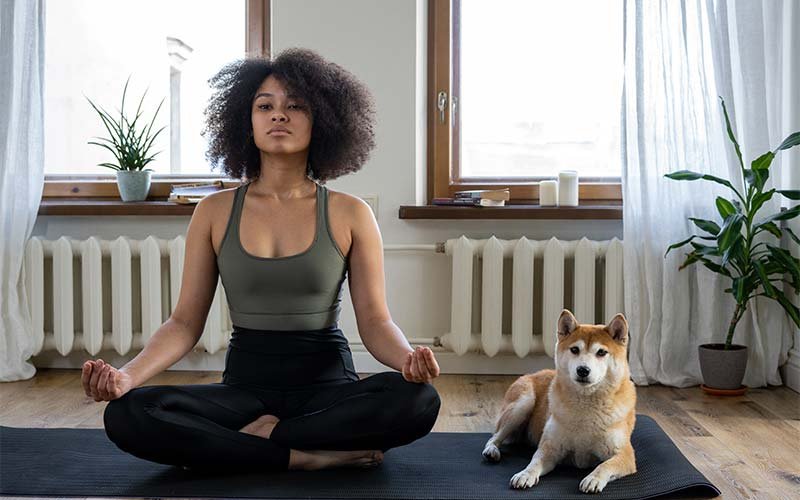This unprecedented time caused by COVID-19 has left many parents struggling to navigate a new, uncharted territory of challenges. The fear and uncertainty of being locked up at home have made it difficult for families to keep a sense of calm and establish new household norms.
With the rapid and drastic changes in daily life brought about by the pandemic, it is not surprising for parents to think twice about their parenting approach: Are they doing enough? Is there anything else they should be doing? Many parents are feeling overwhelmed, and it’s completely understandable.
While there’s no doubt that you’re doing the best you can as a parent in these challenging times, you might also be looking for more effective parenting that will work in the face of this pandemic. Below, we are giving you some key strategies to refer to that will help reduce overall anxiety in your home and help enhance your foster children’s emotional well-being. Bear in mind that the goal is not to be perfect or achieve maximal productivity, but rather to maintain emotional and physical wellness.
Provide Some Structure to the Day

An open-ended day without a clear schedule rarely bodes well for most children and teens, and may even trigger anxiety. Having structure helps provide some predictability in these uncertain times and may also help children feel a sense of accomplishment and control.
However, make sure to do this in moderation and not go overboard with scheduling their days because a restrictive schedule can also obstruct emotional wellness. Allow flexibility in the schedule while ensuring regular bedtimes and waking up times as often as possible.
Give Positive Feedback, and ‘Choose Your Battles’
Many parents feel the urge to correct every ‘annoying’ move of their child/teen, and this may happen more often now that many people are at home the entire time with their children. Avoid doing it. Instead, be intentional about noticing and praising the desirable behavior exhibited by your child.
Giving specific praise is more beneficial than giving general credit. When calling out an action, first distinguish whether it is risky and dangerous or just annoying. An annoying behavior may be unintentional or your child’s way of coping. Correcting undesirable or annoying behavior is likely to reinforce it, while constant negative feedback and criticism can negatively affect your child’s self-esteem that’s only starting to develop.
Spend Some Quality Time Together
Spending even just 10-20 minutes of regular quality time together with your child/teen can make your child feel supported, understood, and calmer. For children between 2 to 10 years old, you can do ‘child-directed play’ or ‘freely chosen play.’ This approach requires not giving instructions or telling the child what to do or engaging in competitive play. Instead, it encourages allowing the child to direct and guide the play. This approach helps strengthen the bond between you and your child and helps children develop confidence and self-esteem. For older children, you may try an activity chosen by your child, such as board games or hobbies appropriate for their age. Do this without controlling, directing, or criticizing your child. For your teenager, consider an activity or conversation chose by your teen, and aim to listen actively and support them.
Pause and Slow Down

Pausing mindfully during the day can help both you and your child achieve or maintain better emotional health by bringing calm and help you regain perspective when things begin to feel overwhelming. Practicing mindful pauses can also help you be more patient and less reactive, which is a more strategy for practicing effective parenting.
Encourage Your Child/Teen to Return to or Develop Hobbies
While learning through schoolwork is essential, creative pursuits are also crucial for brain development. Whether it’s playing the piano or guitar, singing, dancing, writing, drawing, painting, reading, or something else, encourage your child to practice their creativity while you are with them at home. Creative activities can provide your child with a sense of fulfillment and joy, enhancing their emotional and cognitive well-being.
Set Limits on Use of Social Media and Explain What the News Means
News overload about coronavirus and its effects can be exhausting, confusing, overwhelming, and scary for children and teens. Limit your child or teen’s daily news intake to a reasonable level based on their developmental level to help everyone in the family feel calmer.
Also, take the time to explain what certain news means in a factual way suited for your child’s developmental stage. It will also benefit your children, particularly the younger ones if you reassure them of their safety during these difficult and uncertain times. However, keep in mind that excessive reassurance may also not be beneficial in the long run.
Help Your Child Remain Connected with Their Friends

As a precautionary measure against the coronavirus, the CDC recommends limiting children’s contact with people outside your immediate household. Adhere to the CDC guidelines while helping your child/teen stay connected with their friends through phones or digital media. For teens who have social media accounts, supervise or monitor their use of these accounts appropriately.
Entrust Your Child with Tasks Appropriate for Developmental Stage
Let your children do the things that they can do for themselves. This may be putting their crayons back, cleaning up paint after painting, folding laundry, rolling out the dough, or any other simple, household activity appropriate for their age and developmental level.
Teens may help with tasks, such as guiding younger siblings with learning activities, choosing what to buy for online grocery delivery, etc. This way, you can help your child or teen gain a sense of mastery, agency, and confidence. Remember not to go overboard with this, and supervise and monitor tasks as needed.
Attend to the Basics

Ensure that you attend to the basics of care for you and your children, such as getting quality sleep, healthy food, and, if possible, engaging in a fulfilling activity. One of the crucial steps of effective parenting is ensuring that you are taking care of yourself.
Sleep
Adequate quality sleep is essential for optimal brain functioning and emotional well-being of people of all ages, especially children and adolescents, whose brains are still developing. Inadequate sleep can cause irritability, exhaustion, impaired alertness, and an increased risk of depressive symptoms. Children and teens who don’t get enough sleep have compromised physiological processes essential for growth and maturation.
Good sleep hygiene can help ensure optimal sleep. This can include having a regular sleeping and waking time, maintaining a comfortable room temperature, avoiding blue light at least for an hour before bedtime, avoiding caffeine in the late evening, regularly exercising before 6 pm, avoiding rich, fatty, or spicy foods before bedtime, and getting adequate sun exposure during the day.
Coronavirus Precautions
Practice the novel coronavirus precautions as per CDC guidelines in and out of your home. Teach your children how to properly do it and observe your child/teen for any signs of emerging illness.
Learning
Communicate with your child’s school for your child’s learning activities and discuss any challenges your child may be facing in accessing or doing schoolwork.
Exercise
Encourage your child/teen to get regular physical activity appropriate for their age and as recommended by their pediatrician.
Coronavirus Precautions
Professional Help
If you or your child/teen is suffering from a mental health issue, don’t hesitate to seek professional help. Most health experts, including mental health professionals, are now seeing patients via telepsychiatry or telehealth.
Practice Compassion Towards Yourself and Your Child or Teen
Be compassionate towards yourself and towards your child or teen. Compassion helps us be aware of other people’s suffering and have the desire to ease that suffering. Suffering is a normal part of human life, and being compassionate does not mean letting go of limits. Instead, it involves discerning the humanity in ourselves and others. Practicing compassion is beneficial for emotional well-being and may reduce stress.
Most children and teens in foster care have survived a lifetime of uncertainty and change before and during foster care. For these children, changes during COVID-19, such as social distancing, can trigger traumatic memories or symptoms. The tips above can help you parent your foster child through this challenging time.
For more information about Foster Parenting, please don’t hesitate to reach out to Courage Community Foster Care at 719-321-4319 or kerrih@FosterCourage.com.

Recent Comments